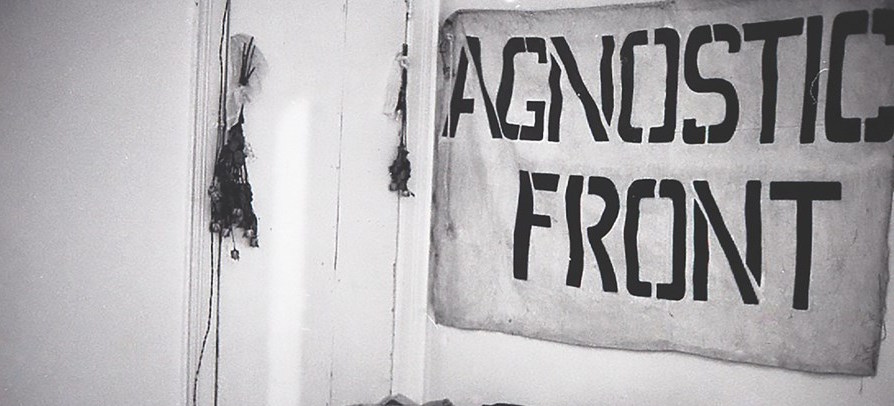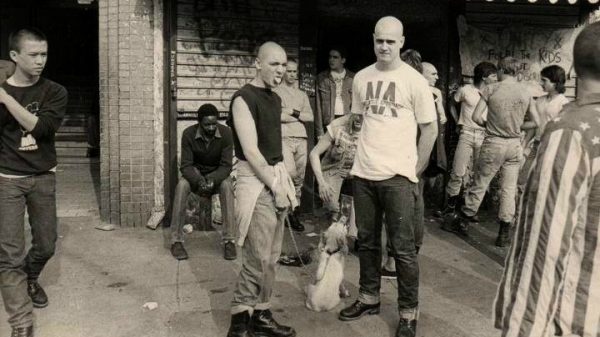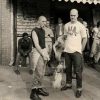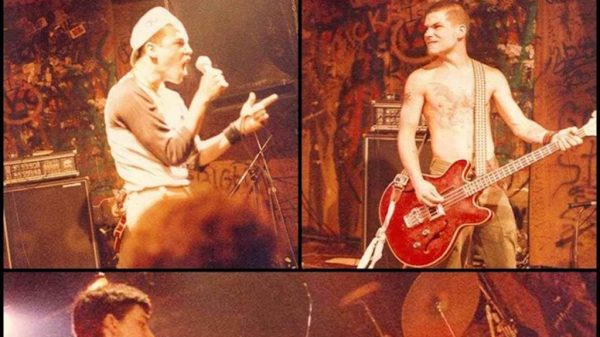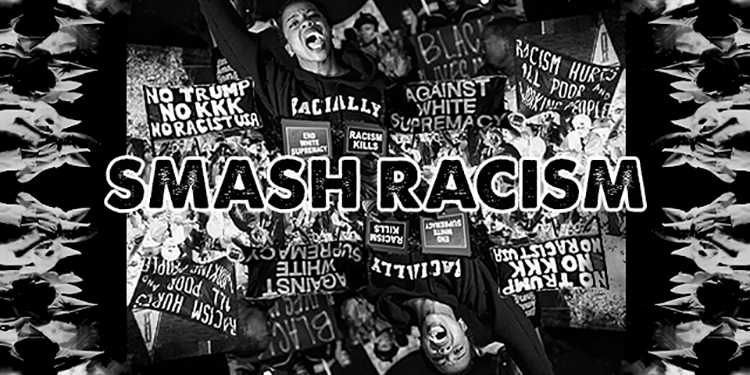In the early 1980s, CBGB’s became the undisputed birthplace and home of East Coast hardcore. The owner of the club, Hilly Kristal, did a lot for underground music in general – but what really established the hardcore scene were the classic CBGB hardcore matinees. The late night shows were sometimes considered intimidating; it was a little safer to go to the city and see a punk show during the day rather than taking that journey to the Mudd Club or CBGB’s on the Lower East Side.
One of the bands integral to that scene was Agnostic Front. A memoir written by the band’s 53-year-old Cuban lead singer Roger Miret, called My Riot: Agnostic Front, Grit, Guts, and Glory, explores his life – his chaotic upbringing, his rapid ascension to becoming a hardcore king and then his descent into crime. We talked to Miret about squatting on the Lower East Side, why he became a singer, and the circumstances that led him to prison.
Via Dazed Digital
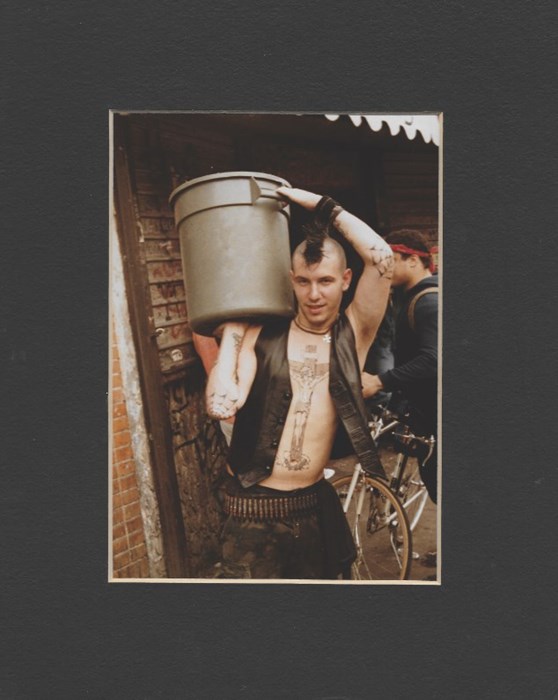
[youtube id=”g8KNjq39JBU”]
You ended up on the streets of the Lower East Side when you were a kid in the early 1980s – what was that like?
Roger Miret: That was a safe haven for me, believe it or not. You look at these pictures and you look at everything and you’re like “what the fuck.” It looked like hell. It was definitely living in hell amongst the criminals and people that had mental issues, physical issues, junkies, everything. It was just crazy. It was hell, but a safe haven. I found people like me that had similar journeys, similar backgrounds. We were a bunch of misfits and rebels, a bunch of hooligans, but we all found each other. We found each other through music and we started to hang out. It felt like this real constant buildup of a family. We became a tribe. We became a force within ourselves and we protected ourselves. So living in the Lower East Side in those squats, in those abandoned buildings, we always lived like a hardcore community. It felt safer than being at home. It’s bizarre. We were all growing up in these buildings, in these places, and we felt safest together.
When did you decide that you were going to be a singer and why?
Roger Miret: I was never a singer. I played bass in a lot of bands in New York before they moved forward to establish themselves, then all of a sudden I was asked to sing. I was okay singing and playing bass, but I didn’t feel like I was okay singing with a mic. The only thing that saved me or made it even possible, because I was pretty much an introvert back then, was that these were my friends, these were my peers, so they weren’t going to judge me. I never felt like, OK, shit, I’m going to be judged by everybody, they’re going to think I suck or hate me. That was never something that came across my mind.
We supported each other’s bands. We supported each other’s life. It was very comfortable to do. Which was really awkward for me for who I was as a person, but I never felt intimidated by it. It was a little weird being behind an instrument and then just having a mic to kind of hide behind. It just wasn’t comfortable, and it took a couple of shows, but I became comfortable with it, because I realised that I had great friends and a really great support system.
What was it like being a pioneer of the New York City hardcore scene?
Roger Miret: We came through all walks and paths of life and all kind of different family backgrounds and bands like Agnostic Front and Murphy’s Law, became safe havens. There were a lot of really super important bands that gave birth to this movement. I’ve always said it was a movement. It was a very intimate scene, very close-knit, and very protective of each other. Everybody was in bands or even if you weren’t in a band, everybody always came out to be with each other. That’s where we felt the safest in the ugliest, nastiest, most dangerous place. Imagine traveling out of your nice Queens home or your Long Island home or your Jersey home, to come to this shithole, but this is where you feel safe, which is insane. If you look at that area now you’re like ‘what the fuck is this guy talking about’, but go visit that area in 1980, 81, 82 and it was hell. It was different.
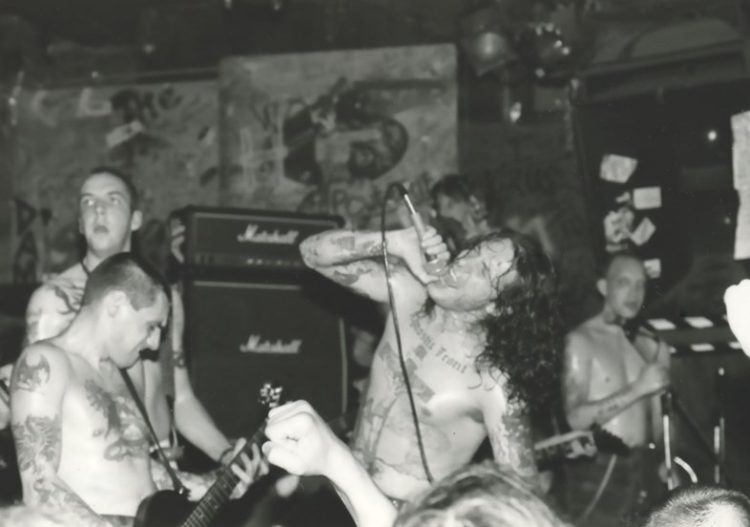
What circumstances led to you ending up in prison?
Roger Miret: Bad choices, flashbacks of my youth, being a kid and basically growing up poor. I just panicked and freaked out. I thought I needed to do what I needed to do to raise a child. Not really thinking about the impact. I was just thinking about the moment. My kid was sleeping in a chest of drawers, in a blanket, and I had no food. I had nothing. There’s roaches, mice, rats, and it was just panic. I wasn’t thinking. It was take this, bring it over here, and you make this amount of money. I wasn’t in the street peddling drugs directly to junkies or anything like that. I was young, dumb and I didn’t think about the chain effect.
I bought this giant package from somebody and I never thought about what was going to happen past that. What was getting out into the streets and destroying thousands of lives. I didn’t know that, that wasn’t clear to me. I wasn’t thinking that far ahead. I didn’t know how much it would hurt people along the chain line, because I was living in the moment. It was just a big mistake. A bad choice and I clearly picked that up later, but unfortunately I had to go through what I had to go through. But overall I took what was a horrible situation and took the best out of it, and to do that is just amazing. It’s strong. To take something so bad and make something positive out it.

